
Politics
13:16, 01-Jul-2018
Mao Zedong: Leader of the Communist Party of China
Updated
13:12, 04-Jul-2018
By Wang Mengjie, Geng Zhibin
01:22
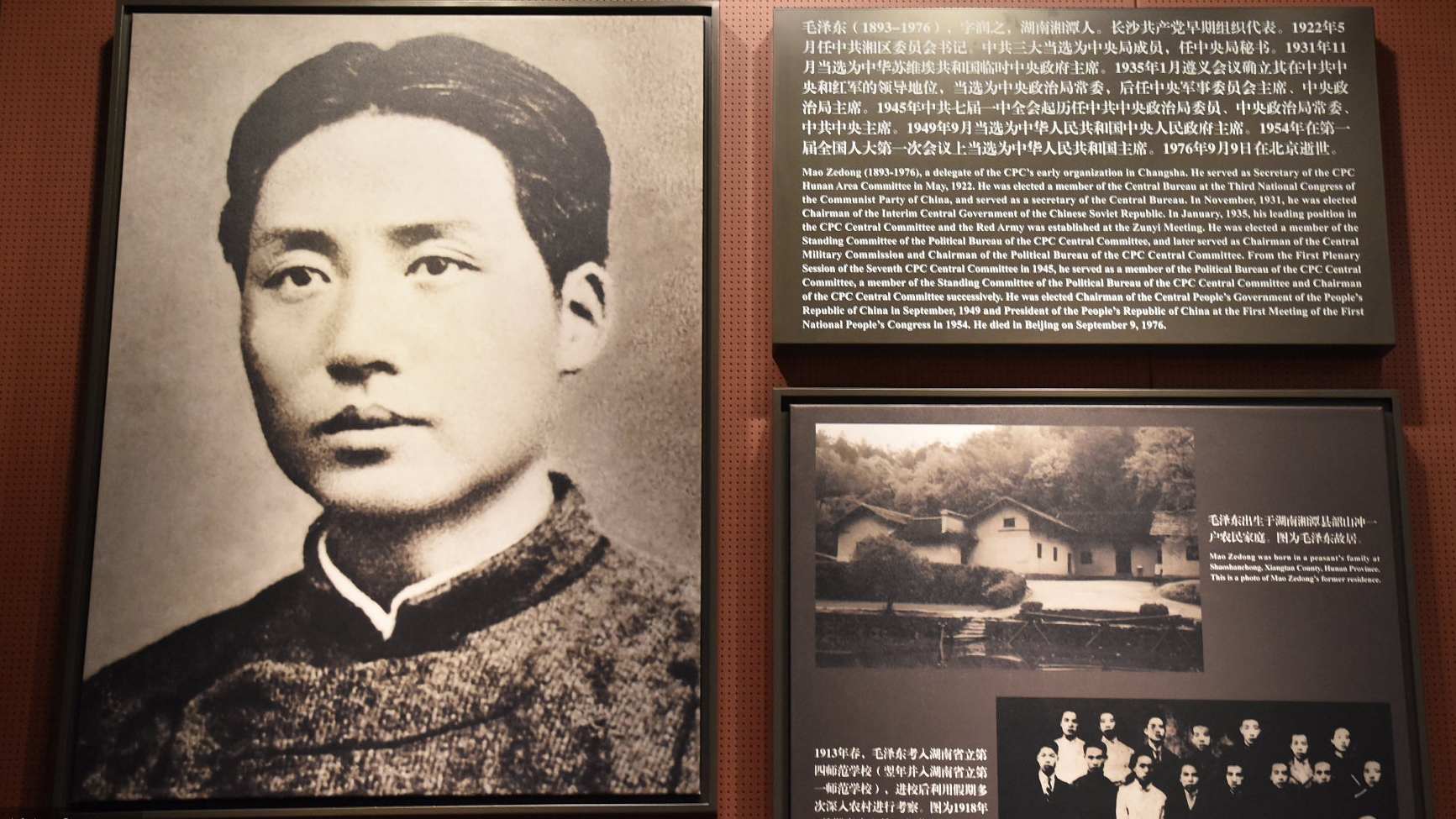
Editor's note: This series introduces the five historical icons of the Communist Party of China (CPC): Chen Duxiu, Li Dazhao, Li Da, Chen Wangdao and Mao Zedong.
Mao Zedong was a great Marxist, proletarian revolutionary, strategist and theorist, and the main founder and leader of the Communist Party of China (CPC), the Chinese People's Liberation Army (PLA) and the People's Republic of China.
Mao's first idol
Mao was deeply influenced by the magazine "Le Jeunesse" ("New Youth") founded by revolutionary socialist Chen Duxiu.
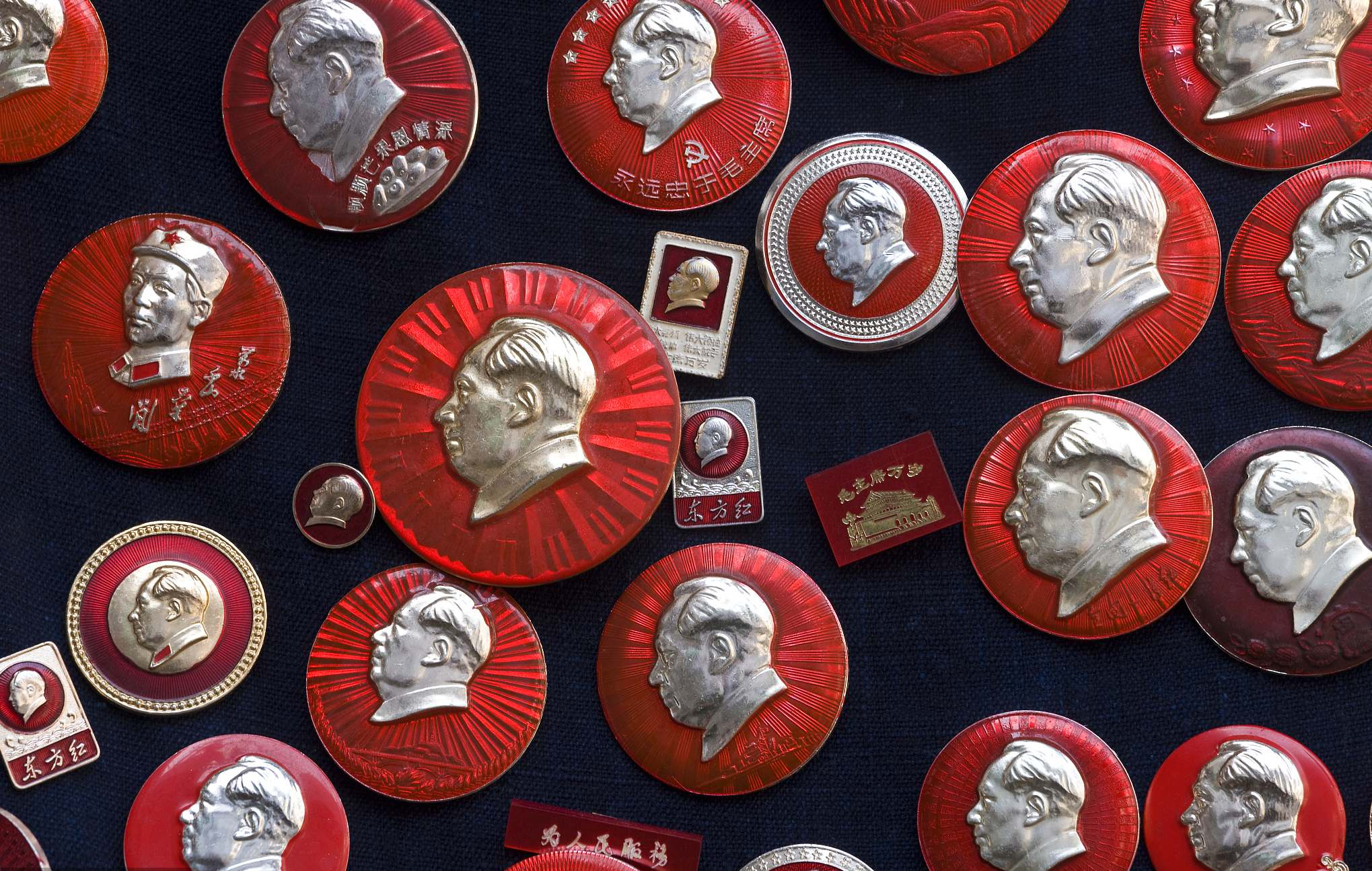
Medallions and badges of Mao Zedong. /VCG Photo
Medallions and badges of Mao Zedong. /VCG Photo
He respected Chen for his unique insights into political theory, solid literary and theoretical skills, incisive writing style and his sharp eyes and keen sensibility.
Mao's real mentor
In 1918, Mao came to Beijing and worked at the Peking University Library. When passing by an office at the southeast corner on the first floor of the red building, he saw the "Mr Li" – Li Dazhao, whom Mao had long admired.
As Mao's earliest and most prominent influencer, Li helped his protege find a job at Peking University as an assistant librarian. This position offered Mao eight silver dollars a month, helping him to make ends meet.
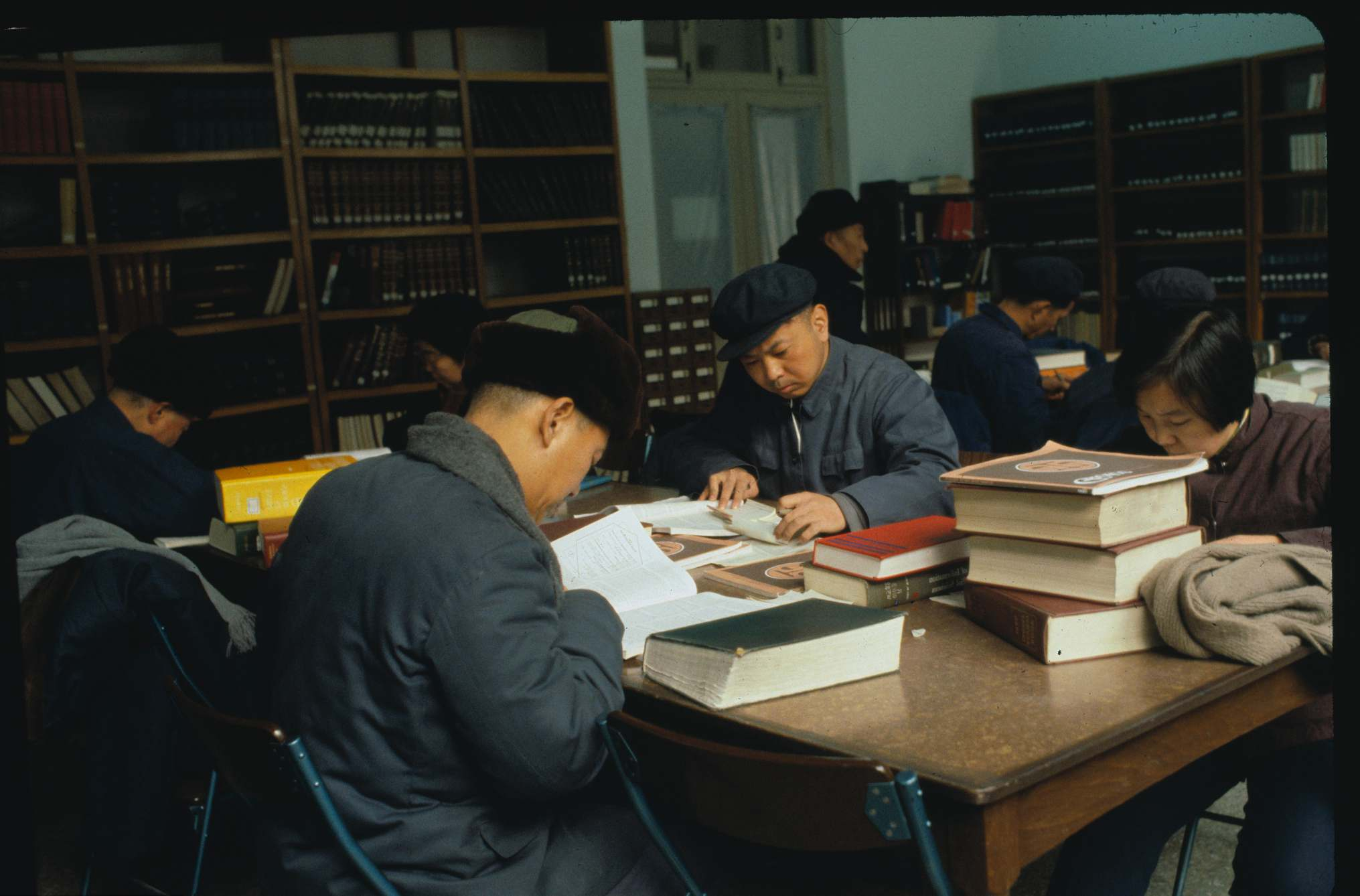
January 3, 1979: Students study in the reading room of the Peking University Library. /VCG Photo
January 3, 1979: Students study in the reading room of the Peking University Library. /VCG Photo
The period when he worked at the library was also the time when Li started promoting the Russian October Revolution to the Chinese people. Li's tireless practice of and firm belief in Marxism had a profound impact on Mao.
Mao's first encounter with Marxism
In 1919, news that the May Fourth Movement had broken out in Beijing quickly spread to Mao’s hometown Hunan, where he began his own patriotic movement. This was his first time studying and believing in Marxism.
After Chen Duxiu was arrested, student groups and people from all walks of life wrote letters requesting his immediate release. Mao, who was in Hunan at the time, published an article "Chen Duxiu's Arrest and Rescue" in the first issue of "Shian Kian Weekly Review," that spoke highly of the detainee as an "intellectual star" and asserted that "the government never had the guts to put Chen to death."
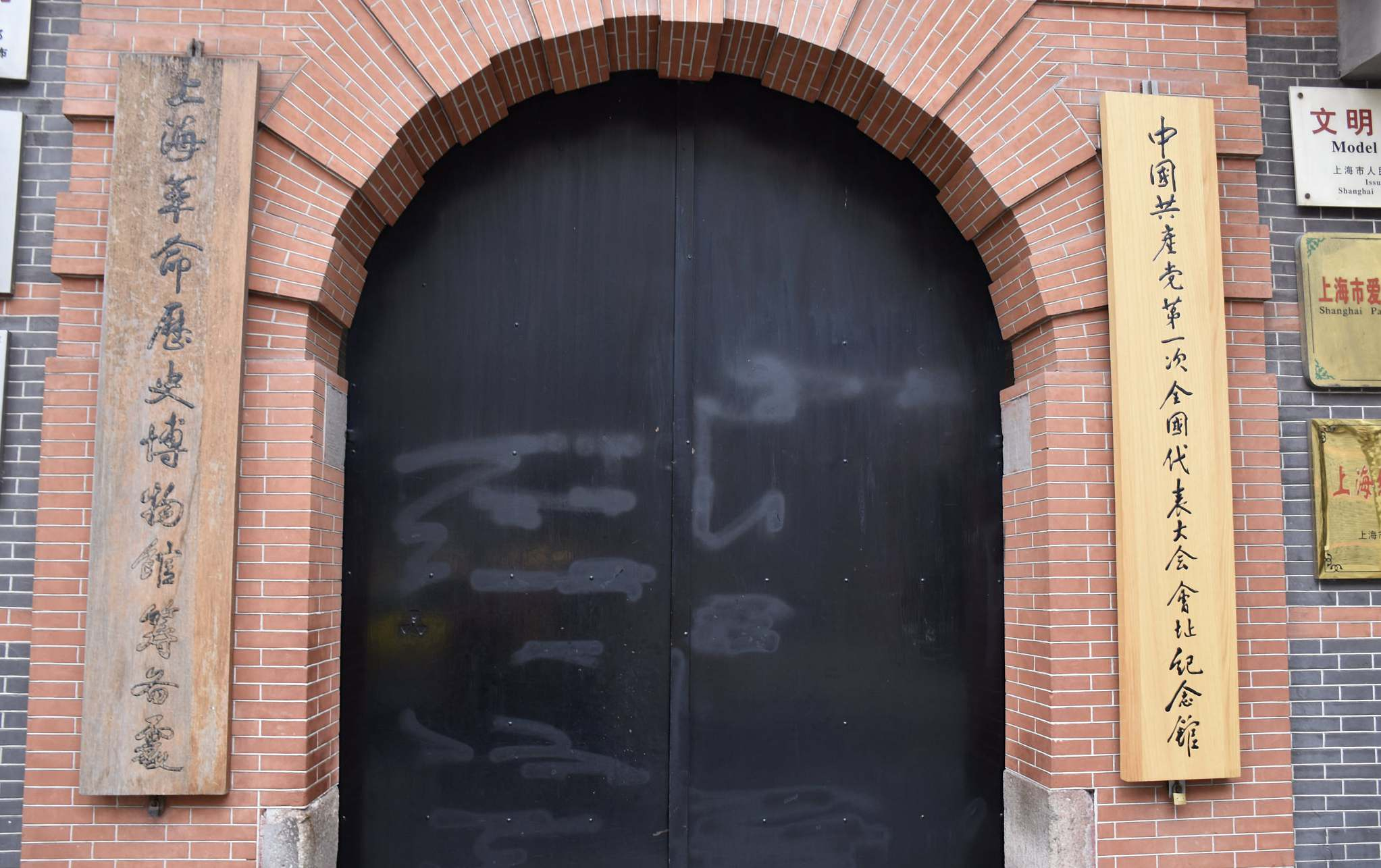
February 27, 2018: The site of the First National Congress of the CPC is now preserved as a museum in Shanghai. /VCG Photo
February 27, 2018: The site of the First National Congress of the CPC is now preserved as a museum in Shanghai. /VCG Photo
Mao's first attendance
In 1921, when Mao was actively promoting Marxism in his hometown, a letter from Li Da inviting him to attend the First National Congress of Communist Party of China was the beginning of a promising political career. Under extreme secrecy, Mao quietly left for Shanghai.
The CPC finally held its first meeting at No. 106 Wangzhi Road of French Concession in Shanghai, after a long period of preparation. In total 13 delegates, including Li Da, Li Hanjun, Dong Biwu, Chen Tanqiu, Mao Zedong and He Shuheng, were in attendance.
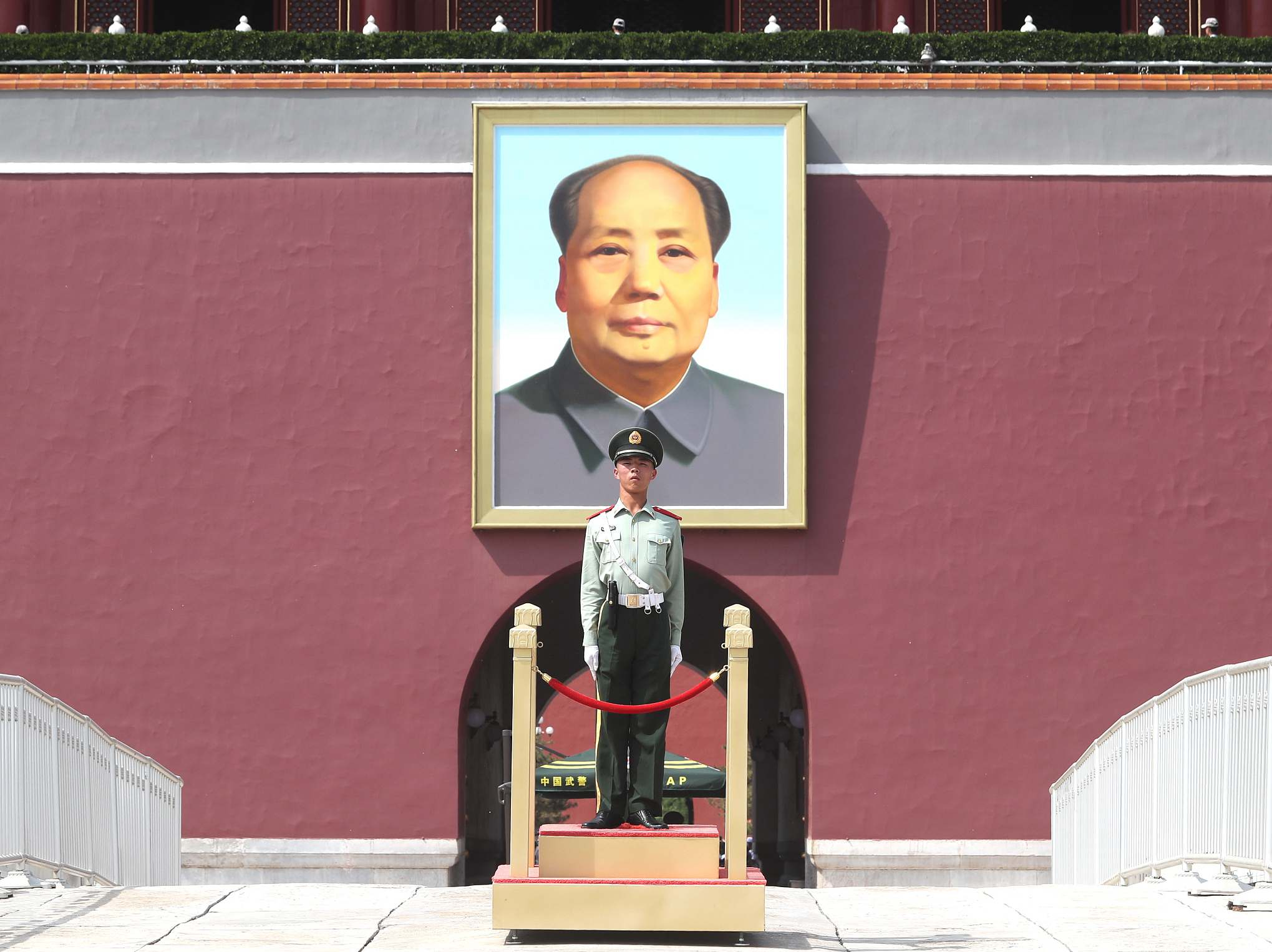
May 8, 2018: Photo of Mao Zedong at Tiananmen Square in Beijing. /VCG Photo
May 8, 2018: Photo of Mao Zedong at Tiananmen Square in Beijing. /VCG Photo
It was known that the meeting always grabbed Mao’s heart. He paced back and forth during the breaks as he tried to solve major problems of the Chinese revolution. Sometimes he just didn’t notice others as he was so deep in thought.
During the meeting, Mao was less talkative than other delegates, preferring to listen to their speeches and taking notes as he was responsible for the summary of proceedings.
The First National Congress of the Party left a deep impression on Mao, leading him to work towards assuming more responsibilities.
(Cover: Mao Zedong's profile is displayed at the site of the First CPC National Congress, which is now a museum in Shanghai, February 27, 2018. /VCG Photo)

SITEMAP
Copyright © 2018 CGTN. Beijing ICP prepared NO.16065310-3
Copyright © 2018 CGTN. Beijing ICP prepared NO.16065310-3